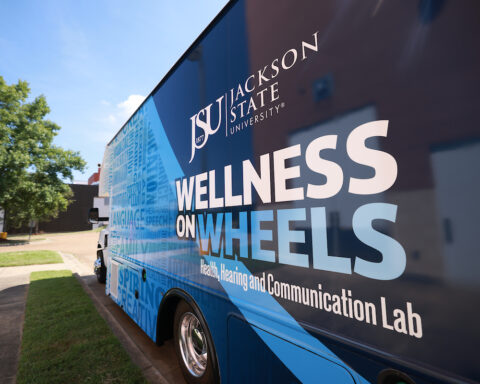By William H. Kelly III
Jackson State University’s (JSU) Metro Jackson Community Prevention Coalition (MJCPC) was awarded the $304,488 Substance Use Prevention, Treatment, and Recovery Services Grant from the Mississippi Department of Mental Health’s Bureau of Alcohol and Drug Services.
The funding applies to the 2023-2024 fiscal year. It marks 32 years for the MJCPC to receive funding from the Department of Mental Health in substance abuse prevention to continue prevention efforts in the Jackson Metropolitan area. The grant aims to provide evidence-based substance abuse prevention services to local schools, colleges, and communities.
“We’re very thankful to receive funding from the Mississippi Department of Mental Health and the Substance Abuse and Mental Health Administration (SAMHSA) once again. It has been a true blessing to educate our youth and community about the dangers of alcohol, tobacco, and other drugs,” said Henry Thompson, MJCPC director and principal investigator.
Initiatives led by the MJCPC include a glow stick party featuring refreshments, music, dancing, and dimmed ambient lighting to encourage students to have fun without participating in substances. There is also the “You’ve Been Tagged” Valentine’s Day event, where students are given prevention messages with cookies and light refreshments to be safe during Valentine’s. Lastly, there is the St. Patrick’s Day mocktail event, where the MJCPC staff serves mocktail drinks and dresses festively in green clothing while emphasizing the dangers of drinking and driving.
The prevention experts staff hosts summer enhancement programs with the City of Jackson. Through the Life Skills Program, an evidence-based curriculum resource, the MJCPC teaches elementary, middle, and high school scholars about self-image, decision-making, coping with anxiety and anger, social skills, and the myths and realities of alcohol, marijuana, and tobacco. There are also alcohol and tobacco prevention training sessions for first-year students enrolled in the university success course.
“Our youth need the prevention messages that we provide them with because often they don’t know how detrimental drugs and alcohol can be to their bodies. Particularly in adolescents, when their bodies are forming and they’re growing. Alcohol and drugs have a detrimental effect on their physical body and cognition because those parts of their bodies have not fully developed,” said Senior Prevention Specialist Pamela McCoy, DrPH. “Even later in life, if they become drug users or addicted to drugs, that has a detrimental effect on their health, particularly heart disease and high blood pressure.”
The MJCPC staff includes Prevention Specialist Terry Bennett, Prevention Specialist Kamryn Dismuke, and Prevention Specialist and Administrative Assistant JaKelia Brown.
Metro Jackson serves K-12 schools, colleges, the community, and senior and parent populations. Licensing is required to conduct the evidence-based curriculum.





